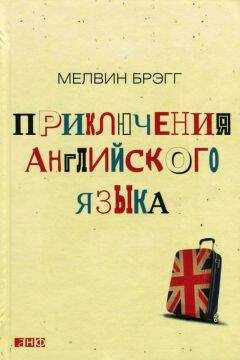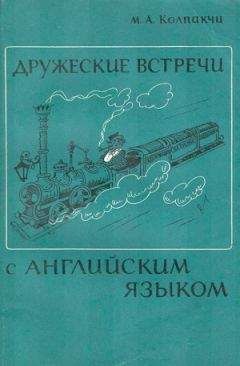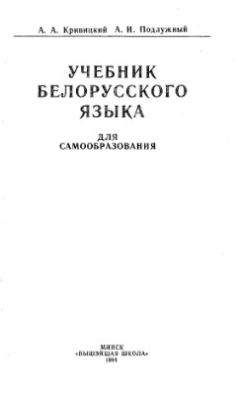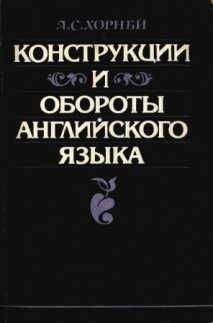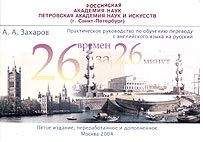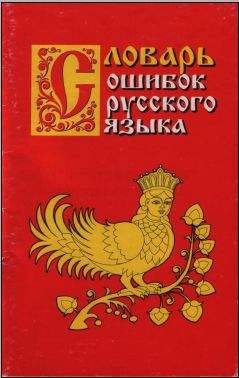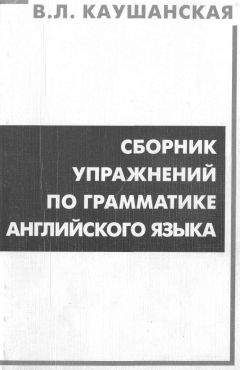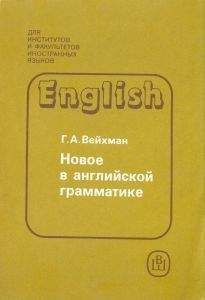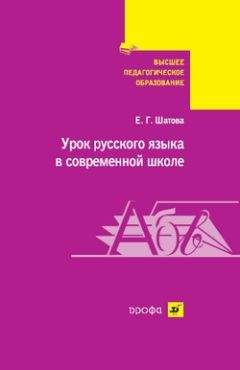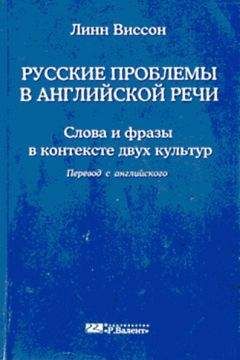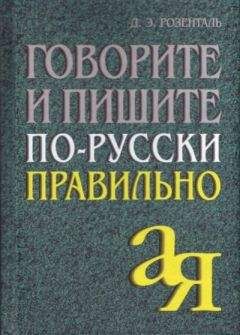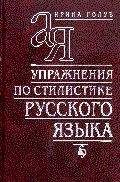Мария Аполлова - Specific English. Грамматические трудности перевода
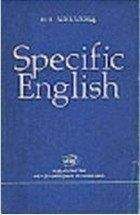
Скачивание начинается... Если скачивание не началось автоматически, пожалуйста нажмите на эту ссылку.
Жалоба
Напишите нам, и мы в срочном порядке примем меры.
Описание книги "Specific English. Грамматические трудности перевода"
Описание и краткое содержание "Specific English. Грамматические трудности перевода" читать бесплатно онлайн.
Пособие знакомит читателя с характерными особенностями английского языка и типичными случаями расхождений с русским языком. В нем суммируются те черты грамматического строя английского языка, которые в силу их специфики представляют трудность для учащихся.
В предлагаемом пособии ставится цель ознакомить учащихся, прошедших первоначальный курс английского языка, с некоторыми характерными системными особенностями этого языка и типичными случаями расхождений с русским языком. Поскольку способ выражения мысли проявляет себя прежде всего в строе языка, в его грамматике, то в пособии вскрываются именно особенности английской грамматики, притом те особенности, которые находили меньшее отражение, а главное — не подвергались достаточной отработке в учебной литературе.
Пособие не претендует на полноту и систематичность описания специфики английской грамматики, но обращает внимание учащихся на отдельные интересные, с точки зрения автора, моменты, которые и придают английской речи ее неповторимое своеобразие.
Кроме того, в пособии рассматриваются такие особенности английского языка, как конверсия, лаконизм английской речи, с одной стороны, и тенденция к известным усложнениям и избыточности — с другой, переходность глаголов и некоторые другие моменты.
Каждый раздел пособия содержит теоретические заметки с иллюстративными примерами в переводе автора. Пособие имеет упражнения, построенные на оригинальном языковом материале и направленные на закрепление практических и переводческих навыков.
VII. Переведите на русский язык. Обратите особое внимание на перевод выделенных атрибутивных групп.
1. Не was dark of face, swarthy as a pirate. 2. His defects were of the surface, he was generous of heart and kindly towards his fellow men. 3. He faced them all, still mild of face. 4. He knew that despite her absurdities she was frail of temperament, easily wounded. 5. Will was just the same, lank and gangling, pink of hair, mild of eye, patient as a draft animal. 6. There were handsome creatures among them, upright of carriage, with delicate features and small, exquisite hands. 7. He was slangy of speech and pleasantly caustic. 8. Himself an ugly man, insignificant of appearance, he prized very highly comeliness in others. 9. «What did he say?» asked one of the aunts, who was a little hard of hearing. 10. One or two outstanding personalities took her eye. An elderly man, very yellow of face, with a little goatee beard. 11. But to James, uneasy of conscience, her look was as good as an answer. It was an arresting face, pointed of chin, square of jaw. Nineteen years old, six feet two inches tall, long of bone and hard of muscle, they were as much alike as two bolls of cotton. 14. He could be grave of manner and charming when he chose. 15. Frail, fine-boned, so white of skin that her flaming hair seemed to have drawn all the colour from her face, she was nevertheless possessed of exuberant health and untiring energy.
VIII. Переведите на русский язык, обращая особое внимание на перевод атрибутивных групп с of.
1. Perhaps he learned to appreciate what a jewel of a wife he has? 2. Up there, that son-of-a-bitch of a captain is probably crying into his sombrero. 3. Meanwhile, he wished the old cluck of a chairman, Zanetta, would get the hell off his feet so that he, Freemantle, could take over. 4. And then I saw a fellow come in I knew. Big bully of a chap. 5. We had a hell of a fight. 6. I can’t tell you how moving it was to see that great bulk of a man uplifted by an emotion so pure and so beautiful. 7. I made a hell of an effort and slipped away. 8. Her mask of a face scowled. 9. She was contemplating an important change in her life and had no interest to spare for these animals oi tourists!
IX. Переделайте следующие предложения так, чтобы употребить атрибутивную группу с of.
1. The driver, a poor bastard, could freeze out there. 2. What was there to fear in this ruined world but hunger and cold and the loss of home? (wreck) 3. He thought it a very funny joke. (hell) 4. I rather liked that Swede, that old pirate. 5. Pacific right there and rolling in huge white thunderous rollers not forty yards away, under her garden which was like a grassy platform. 6. There was an awful row. (devil) 7. Chris! I’ve found a worderful chap. (gem)
X. Найдите постпозитивные определения в следующих предложениях. Укажите причину помещения их в постпозиции.
1. The distance between the two boats was slowly increasing. 2. I don’t like your idea of going there alone. 3. That mutton last week-end was very tough. 4. It is the most difficult task imaginable. 5. That’s the right thing to do. 6. He was the first to join the party. 7. The students there are a j’olly crowd. 8. Suzanne was not a woman to give way to despair. 9. Then he got a telegram from Sweden to say his father was dying and he must come back at once. 10. It was not till two days later that I got a reply to say that they were starting at once. 11. We’ll occupy the room above. 12. That’s the only suite available. 13. I found a message from Joseph Elliott’s manservant, to tell me that Elliott was ill in bed. 14. John Down called for a halt to the bombings, in an address last week to the Episcopal Peace Fellowship. 15. People here do not shake hands as much as we do in Europe. 16. A brief word may be said regarding the material used. 17. «All the anti-Market activities will be intensified in the days ahead,«the statement said. 18. It is evident that the parties concerned do not resort to the use of force as long as the provisions of the disengagement agreement are valid. 19. Though the newspaper has been appearing since 1931, this is the first anniversary to be celebrated in legality. 20. Riley was the first to wake, and he wakened me. 21. Yes, the Grahams were a clan to be reckoned with. 22. Both sides strongly denounced the efforts to divide the African states from the community of socialist countries. 23. The strengthening of detente was among the important matters stressed. 24. We had special problems to deal with. 25. I became the first woman to work in that mine. 26. The only thing political about the office was John De Witt Jackson’s ambitions. 27. There are two things to remember in any court of justice. 28. They again opposed real efforts to bring peace in Mid-east. 29. This broke the strike, and at the end of ten days the two railroad unions involved had to call it off. 30. I’ve just had a cable from Tim to say he’s postponed his sailing. 31. They affirmed their stand for abolition of the racist regime in South Africa. 32. This country was the latest to renew diplomatic relations with Cuba. 33. He was the only man alive. 34. Scientists are considering the problem of how to use energy released by earthquakes. 35. If I believe in one thing in this world it is tolerance, and above all in things artistic. 36. Why, even since the Post-Impressionists there had been one or two painters not to be sneezed at.
XI. Перестройте следующие предложения таким образом, чтобы сказуемое заняло свое обычное место – после подлежащего. (См. образец.) Переведите их на русский язык.
References which should provide a key to the essential relevant literature are given.
References are given which should provide a key to the essential relevant literature.
1. At last the persons for whom Ashenden had been waiting arrived. 2. The rumours of the activities of the revolutionaries grew hot and many. 3. Vague complaints and hints that the natives found Cooper harsh reached the governor. 4. Steps to incorporate the economies of Mongolia and Cuba more deeply in the international socialist division of labour are now being taken. 5. The promise that the priest had uttered meant little to him. 6. Protests against the detention, torture and trial of over 40 supporters of the Black Consciousness Movement in South Africa under the notorious Terrorism Act are planned in 16 major cities throughout Britain. 7. It appeared that a water festival of some sort which Featherstone thought would interest me was to take place. 8. Plans for exhibitions, film showings and other cultural events to be held at the Congress were also drawn up. 9. A beginning in the use of chemicales to cause precipitation over drought-stricken fields or over forest fires has been made. 10. But the point of the girl’s chin was pressed ever closer into her thigh, and the sound of her sobbing was dreadful. 11. In the present study a general survey of structural changes in cellular compounds is made. 12. No trace of any relative or friend with whom it was possible to communicate could be found. 13. A subscription to provide champagne at dinner had been collected. 14. An attempt to summarise the results will be made, 15. Nothing of particular interest was said.
XII. Переведите следующие предложения, обращая внимание на перевод выделенных слов.
А. 1. Не was on the plump side, and he had a pot belly. 2. Ten years before her frocks had been somewhat on the showy side. 3. She must have been a handsome woman when young, for her features, though on the large side, were good. 4. Close up she became Irma Fliegler again; still pretty, a bit on the stout side, but stout in a way that did not make her unattractive. 5. Harris was wearing a regulation shirt, though it was on the small side, and every now and then Harris’s hand would go up to ease the collar. 6. Her tongue slurred here: up to now she had spoken quite plainly, though on the soft side. 7. Too bad she wasn’t more photogenic. On the homely side, I thought. 8. Myself, I should never have been a Judge, as such I was too often on the wrong side.
Б. 1. It was a smallish room, with big deep leather chairs of a delicate brown colour. 2. We have lodges in all the biggish places. 3. Near the front of the audience, a youngish man sprang to his feet. 4. «What about that hotel in the market place, Jimmy?» «Might be a bit dearish.» 5. Well, if you do, I shall feel I ought to go too, and though I’m tiredish too, I hate to think I’m missing anything. 6. He was beginning to feel wonderlandish again, what with Mr Mensworth and the champagne. 7. The Hairless Mexican was a tall man, and though thinnish gave you the impression of being very powerful. 8. It was a longish ride. 9. I had a sweetish taste in my mouth. 10. I’m a baldish, stoutish gentleman of fifty-two. 11. She had known of many separated wives, living equivocally on smallish incomes, and knew how quickly their friends found them tiresome. 12. He was tallish, very spare.
XIII. Переведите следующие предложения. Обратите внимание на различие в употреблении степеней сравнения в русском и английском языках.
A. I. That was the room that Nancy liked best in all the house. 2. The holiday proved to be one of the happier times that Keith and Natalie had ever known. 3. He changed into the Chinese trousers and silk tunic in which he felt most at ease. 4. The findings of the mission include: the desirability of the countries concerned to meet and discuss early how best to initiate further action. 5. In general they went to dine at one of the better restaurants in Montparnasse. 6. But that which 1 liked best is that section of which the artery is the Boulevard du Montparnasse. 7. She congratulated me, somewhat ironically perhaps, on my acquaintance with the more disreputable parts of Paris. 8. Peter crossed to the telephone beside the nearer bed. 9. Among the more important decisions was the resolution on solidarity with that country. 10. My friend Wyman Holt is a professor of English literature in one of the smaller universities of the Middle West. 11. Fortunately, just when things were blackest, the war broke out. 12. «That’s it,«he said, «you young people, you all stick together; you all think you know best!»
Б. 1. Вот вам все (имеющиеся у нас) купальные костюмы. Выбирайте тот, который вам нравится больше всех. 2. Расскажите нам о наиболее значительных (significant) событиях последних дней. 3. Они все хорошо плавают (хорошие пловцы). Но Гаррис плавает лучше всех. 4. Были упомянуты лишь наиболее важные подробности. 5. Ее жаргон напоминал ему о беднейших кварталах Парижа. 6. Лора и ее мать, миссис Клейтон (Clayton), вдова, жили в одной из лучших гостиниц. 7. Это была выставка работ (show) одного из наиболее прогрессивных (advanced) художников. 8. Они заставляли своих жен и детей регулярно посещать самые модные церкви города.
XIV. Переведите следующие предложения на русский язык. Обратите внимание на субстантивированные прилагательные.
1. Nothing you can possibly do could improve the situation in the slightest. 2. «Is he really a bad musician?» «He is. I haven’t heard a worse.» 3. There always lurked in the back of her mind the disquieting memory that he had seen her at her worst. 4. I don’t like him in the least. 5. Afterwards, when the worst of the emergency was over, he could return to work for the remainder of his shift. 6. He always referred to the soldiers as «our brave boys» or «our heroes in gray» and did it in such a way as to convey the utmost in insult. 7. Each was trying his hardest to read the other’s thoughts. 8. In normal circumstances he would have had only one thought, which would have been to show himself to Mrs Merle at his most light-hearted, his most urbane. 9. «And I,«cried Dorothy, «and I?» She was at her most dangerous. 10. I really did my damnedest.
XV. В следующих предложениях укажите наречия степени, которые представляются избыточными или не совместимыми по смыслу с определяемым словом с точки зрения русского языка.
1. She’s quite the best dancer I know. 2. Christine realised suddenly how very tired she was. 3. Think of something not quite so expensive. 4. «Are you staying here?» he asked. «Only for a very few days.» 5. Hans and Peter are quite the noisiest boys that I know. 6. But they had come on a very different errand. 7. Al lived then at Gorney’s Hotel, which was not quite the worst hotel in Gibbsville. 8. I’ve talked with her quite a few times. 9. You’ve spoken a little too much tonight. 10. Isn’t it rich to hear her? How very original she is! 11. I want you to give his reports your very best attention. 12. It’s a bit too much. 13. Isn’t the telephone working? How very trying. 14. She is a darling, he thought, and so very dense. 15. We’re Matthew’s very oldest friends. 16. She was interested to see how very disagreeable and ill-dressed many of the women visitors seemed. 17. But he had been a little too quick at this point. 18. «How very kind,«she murmured. 19. In the end she found herself obliged to give quite a little lecture.
«Опредмечивание» степени, признака и действия
Мы уже видели выше, что прилагательное в английском языке может субстантивироваться, т. е. как бы «опредмечиваться». Это явление широко распространено в английском языке. Так, степень в нем также оформляется как материальная частица, в единицах количества: much, as much as, something of, the whole of, none of, a bit of и т. д.
Подписывайтесь на наши страницы в социальных сетях.
Будьте в курсе последних книжных новинок, комментируйте, обсуждайте. Мы ждём Вас!
Похожие книги на "Specific English. Грамматические трудности перевода"
Книги похожие на "Specific English. Грамматические трудности перевода" читать онлайн или скачать бесплатно полные версии.
Мы рекомендуем Вам зарегистрироваться либо войти на сайт под своим именем.
Отзывы о "Мария Аполлова - Specific English. Грамматические трудности перевода"
Отзывы читателей о книге "Specific English. Грамматические трудности перевода", комментарии и мнения людей о произведении.





